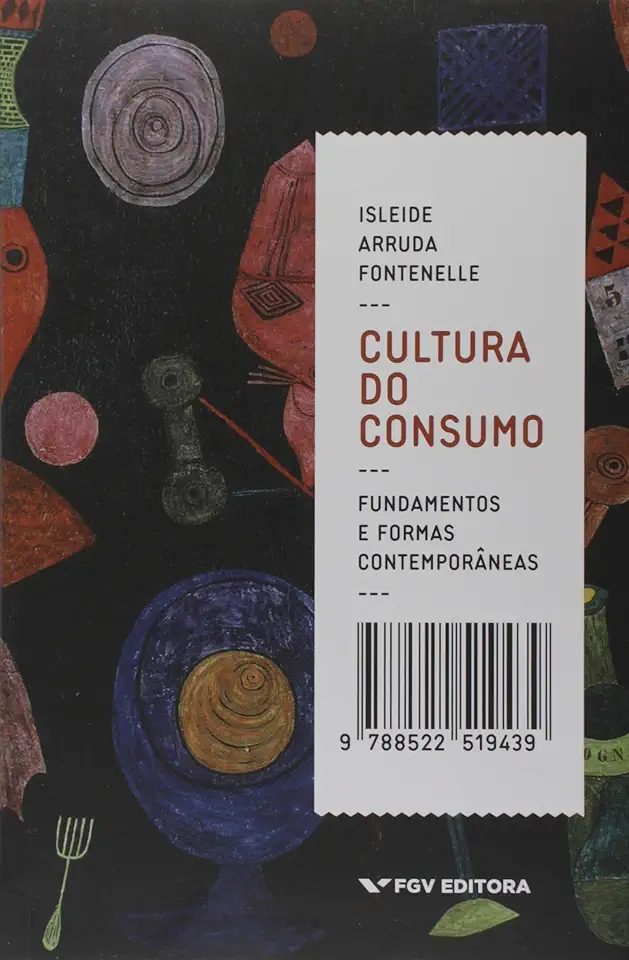
CONSUMER CULTURE - FONTENELLE, ISLEIDE ARRUDA
Consumer Culture: A Critical Perspective
Introduction
In today's world, consumer culture is a pervasive force that shapes our lives in profound ways. From the moment we are born, we are bombarded with messages that encourage us to buy, consume, and accumulate more and more. This culture of consumption has a significant impact on our environment, our economy, and our social relationships.
In her book, Consumer Culture, Isleide Arruda Fontenelle provides a critical analysis of this phenomenon. She argues that consumer culture is not simply a neutral force that reflects our natural desires, but rather a complex system that is shaped by powerful economic and political interests. Fontenelle draws on a variety of sources, including sociology, economics, and psychology, to provide a comprehensive understanding of consumer culture and its consequences.
The Nature of Consumer Culture
Fontenelle begins by defining consumer culture as "a system of beliefs, values, and practices that encourages people to buy, consume, and accumulate goods and services." She argues that this system is based on the idea that happiness and fulfillment can be achieved through the acquisition of material possessions.
Fontenelle identifies several key features of consumer culture, including:
- The emphasis on individualism: Consumer culture encourages us to focus on our own individual needs and desires, rather than on the needs of others or the common good.
- The cult of celebrity: Consumer culture often uses celebrities and other public figures to sell products and lifestyles. This creates a sense of aspiration and envy, which can lead to increased consumption.
- The use of advertising: Advertising is a powerful tool that is used to shape our desires and convince us to buy things we don't need.
- The growth of credit: The easy availability of credit has made it possible for people to buy things they can't afford, which can lead to debt and financial problems.
The Consequences of Consumer Culture
Fontenelle argues that consumer culture has a number of negative consequences, including:
- Environmental degradation: The production and consumption of goods and services requires vast amounts of resources, which can lead to pollution, deforestation, and climate change.
- Economic inequality: Consumer culture exacerbates economic inequality by encouraging people to spend beyond their means. This can lead to debt, poverty, and social unrest.
- Social isolation: Consumer culture can lead to social isolation by encouraging people to focus on their own individual needs and desires, rather than on the needs of others.
- Psychological problems: Consumer culture can lead to a variety of psychological problems, including anxiety, depression, and addiction.
Alternatives to Consumer Culture
Fontenelle concludes her book by arguing that we need to develop alternatives to consumer culture. She suggests a number of ways to do this, including:
- Reducing our consumption: We can reduce our consumption by buying less stuff, choosing products that are made sustainably, and repairing or reusing items instead of throwing them away.
- Supporting local businesses: We can support local businesses by buying products and services from them instead of from large corporations.
- Getting involved in our communities: We can get involved in our communities by volunteering, joining community organizations, and supporting local initiatives.
- Educating ourselves: We can educate ourselves about the negative consequences of consumer culture and the alternatives to it.
By taking these steps, we can create a more sustainable and just world.
Conclusion
Consumer Culture is a powerful and insightful book that provides a critical analysis of the role of consumption in our society. Fontenelle argues that consumer culture is not simply a neutral force, but rather a complex system that is shaped by powerful economic and political interests. She identifies a number of negative consequences of consumer culture, including environmental degradation, economic inequality, social isolation, and psychological problems. Fontenelle concludes her book by arguing that we need to develop alternatives to consumer culture in order to create a more sustainable and just world.
This book is essential reading for anyone who is interested in understanding the role of consumption in our society and the alternatives to it. It is a powerful and persuasive call to action that will inspire you to think critically about your own consumption habits and to make changes that will benefit yourself, your community, and the planet.
Enjoyed the summary? Discover all the details and take your reading to the next level — [click here to view the book on Amazon!]